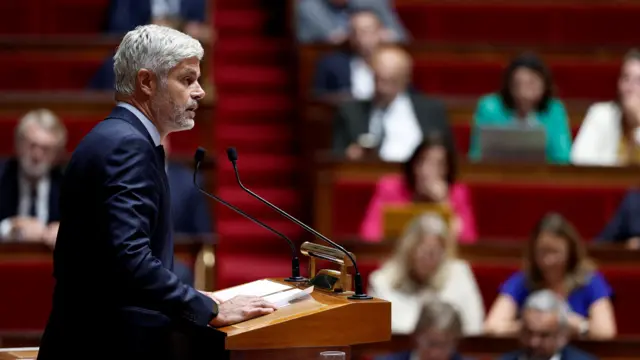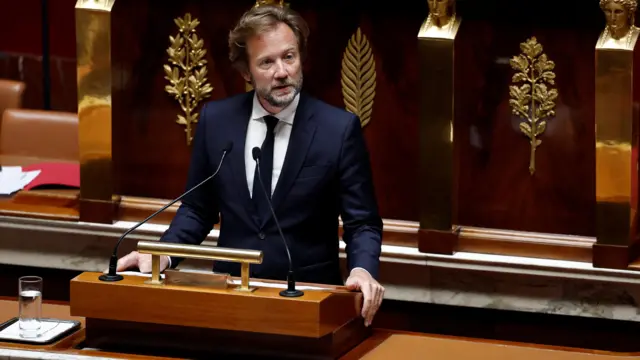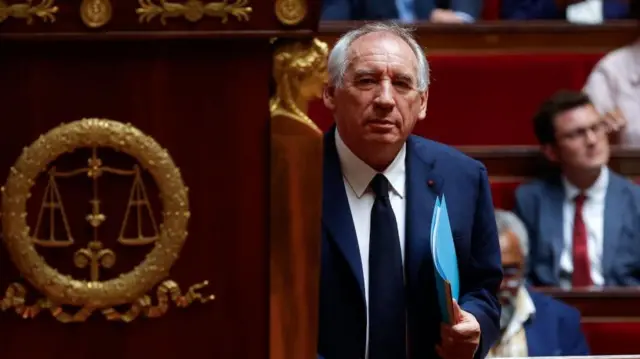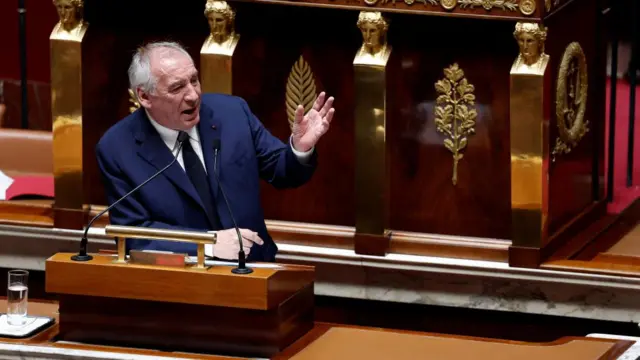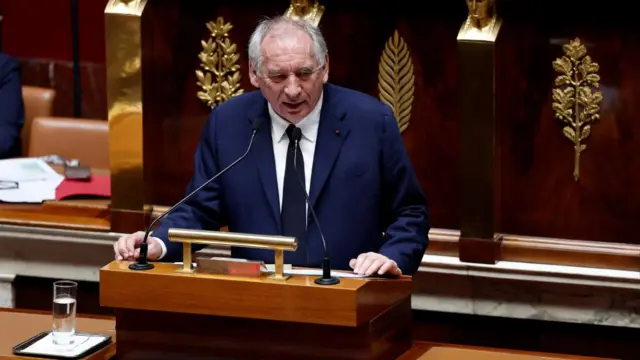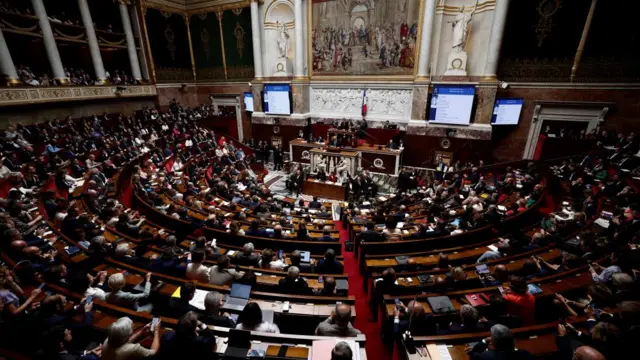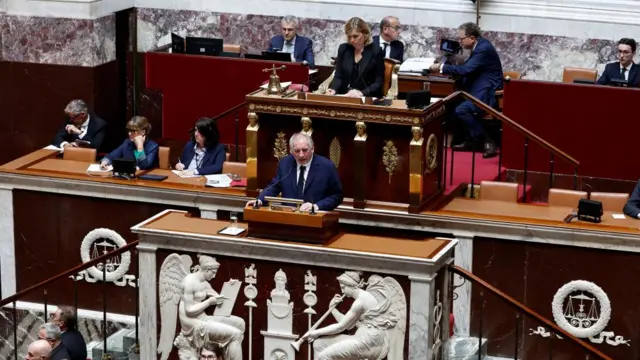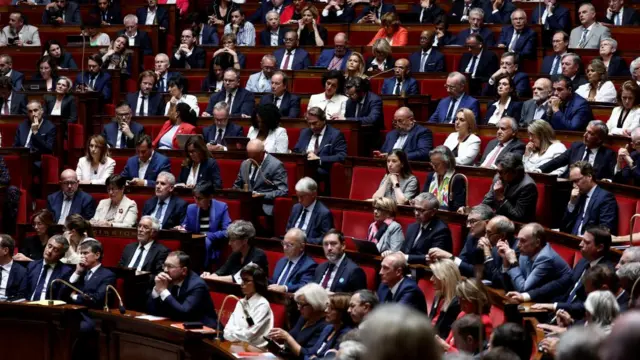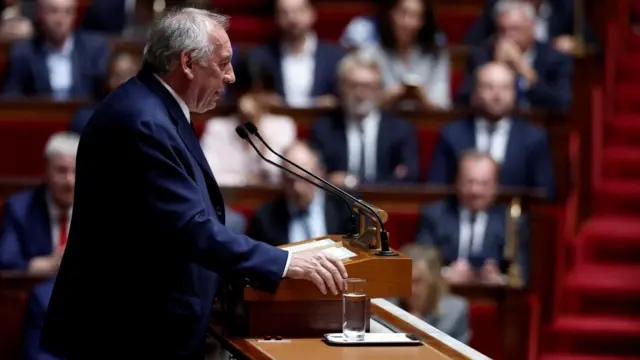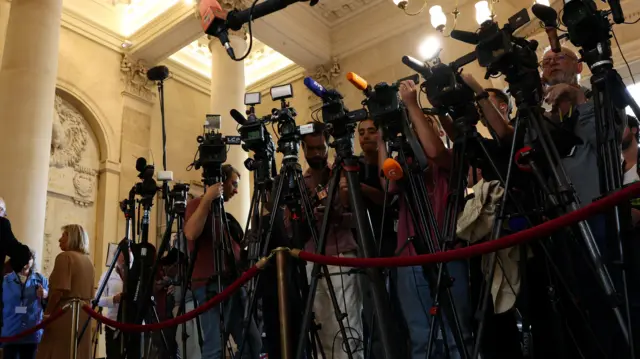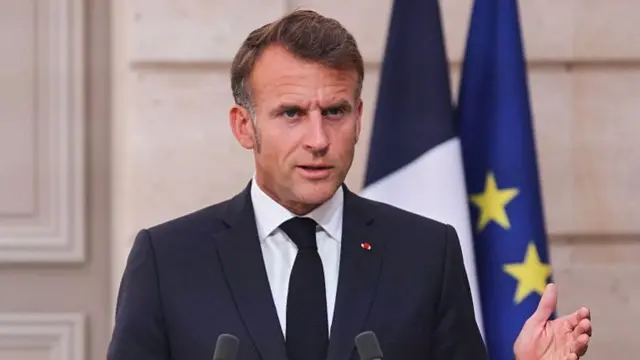Greens tell Bayrou: Your departure 'is a relief'published at 15:56 BST 8 September
 Paul Kirby
Paul Kirby
Europe digital editor
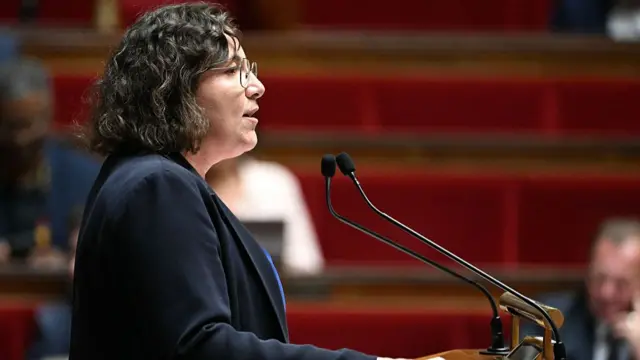 Image source, BERTRAND GUAY/AFP
Image source, BERTRAND GUAY/AFPCyrielle Chatelain of the Greens was bitterly critical of the prime minister's record
The Socialists have said they won't back Bayrou, and on the far right the National Rally have said so too, telling him they only way out of the current impasse is new parliamentary elections.
But some of the most trenchant criticism of Bayrou has come from the Greens whose Cyrielle Chatelain has attacked the prime minister's record in office and his "harmful lies".
As Bayrou shook his head, Chatelain told him: "Your departure is a relief. If it weren't for the worry of what comes next, it would be almost satisfying."
She's calling for a government of the left to ditch austerity and replace it with what she calls "fiscal justice". It's not a question of changing the face of the government, but of changing course.



